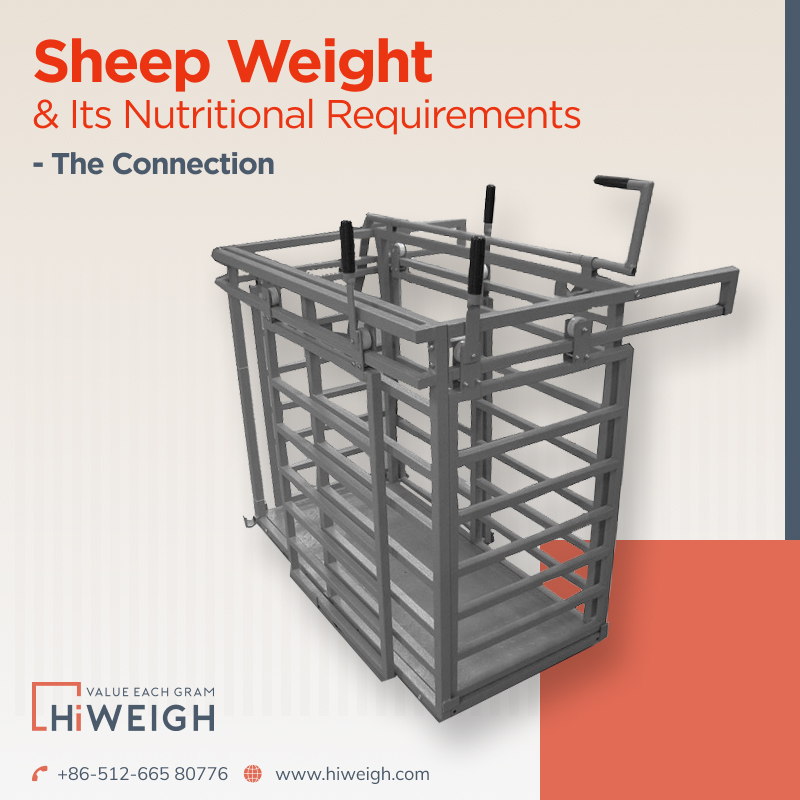A crucial aspect of controlling sheep’s dietary needs is accurate weight assessment. The weight of the sheep is a key factor in choosing the best feeding plans, maintaining optimum nutrition, and enhancing the general well-being and productivity of the flock. Nutritional needs must be carefully managed because they’re part of the complicated process of sheep husbandry.
Ranchers invest in China hog sheep scale because the dietary needs of sheep are greatly influenced by their weight. For these animals to remain in their ideal state of health, development, and output, adequate nourishment is crucial. That’s why we are going to discuss the relationship between sheep weight and dietary requirements, emphasising how it affects both their general health and production.



Importance of Sheep Weight
If you’re willing to understand the weight range of sheep, know that sheep come in a range of weights depending on breed and age. For certain reasons, like meat output, wool quality, or reproductive effectiveness, it is crucial to ascertain the desired weight. Furthermore, in relation to body condition score, a sheep’s body condition score (BCS), which measures the body’s fat stores, and weight are strongly correlated. BCS is a crucial gauge of the nutritional condition and general health of sheep.
Nutritional Requirements at Different Stages of Sheep Growth
During the early growth and development period, lambs need a high-quality diet to assist their quick growth. For proper skeletal and muscular development during this period, sufficient protein, energy, vitamins, and minerals are essential. When it comes to maintenance requirements, adult sheep need energy for upkeep to sustain their essential physiological processes. These specifications change depending on things like weight, age, breed, and the amount of exercise. Also, for ewes to successfully reproduce, become pregnant, and provide milk, proper nutrition is essential. During these stages, nutritional deficits can result in impaired milk production, low conception rates, and decreased fertility.
Assessing Nutritional Needs
For the purpose of figuring out the dietary requirements for sheep, accurate weight measurement is crucial. Regular weighing using a dependable sheep weighing scale makes it easier to keep track of growth, spot weight changes, and modify feeding schedules as necessary. Also, a healthy diet for sheep must contain forages, concentrates, and supplements. To suit the unique requirements of the flock, a comprehensive analysis of the nutritional makeup of these meals is required.
Sheep of different classes require different amounts of nutrients. To sustain optimum health and performance, the right amounts of protein, carbs, fats, vitamins, and minerals must be consumed. Seasonal changes may affect nutritional needs. In times of severe weather or limited forage, changes to feed quality and quantity may be required.
Health and Productivity Impact
Optimal growth and weight gain are important factors when it comes to managing a sheep farm. Sheep develop faster and reach market weights more quickly when given the right nourishment, depending on their weight requirements. Ranchers must have a China hog sheep scale to measure their weight to track their health.
In the case of wool quality, nutritional deficits can affect the quality of wool, resulting in fleeces that are coarser and less valued. High-quality wool may be produced with enough nourishment. In terms of reproductive performance, including fertility, conception rates, and lamb survival, proper nutrition is favourably correlated. Reduced conception rates, delayed breeding, and higher lamb mortality are all effects of nutritional inadequacies. Well-nourished sheep have stronger immune systems, making them more resistant to diseases and infections.
Final Thoughts
A crucial component of sheep management is understanding the relationship between sheep weight and dietary needs. Farmers must have a thorough understanding of nutrition’s effects on sheep development, health, and production in order to manage feed in an educated manner. A well-designed feeding programme and consistent weight monitoring of sheep using trustworthy weighing scales help assure the best flock performance, reproductive success, and overall financial success of sheep farming enterprises. Farmers may improve the welfare and production of their flocks by giving priority to proper nutrition, depending on the weight of their sheep.
